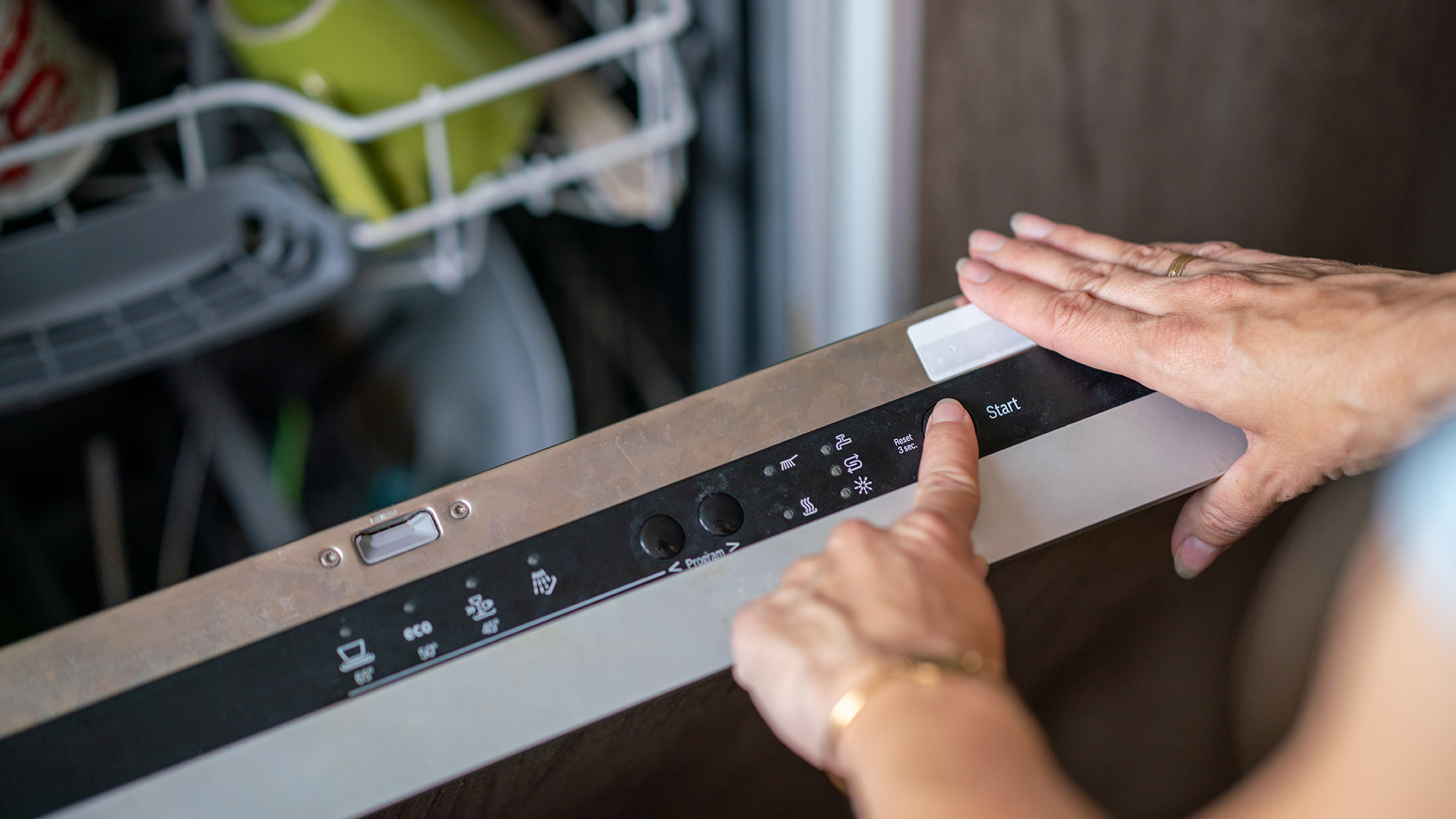Whether you're hosting a dinner party with many dishes or you simply want to get to bed quickly after dinner, you might wonder, 'How long is a dishwasher cycle?'
No one has infinite time to wait for dishes to be clean, especially if you have a busy lifestyle with a job, responsibilities, a family, and a hectic daily routine.
Sometimes, dishwasher cycles last longer than usual, and it can be tricky to pick the proper cycle length when faced with confusing symbols.
It's essential to understand the different options specific to your dishwasher so that you can customize your cycles, either for the depth of cleaning that your dishes require, or based on the amount of time you have spare.
Whether you've chosen one of the quietest dishwashers or one of the largest dishwashers, you want to ensure you're getting the most out of your money, so it's vital to understand precisely how your machine works. Start with the manual for your dishwasher and carefully read the manufacturer's instructions and guidelines on the functions, cycles, and how to care for your dishwasher.
An extra-long dishwasher cycle can have you wondering whether there's a more complicated issue. Knowing the proper length of your dishwasher cycles will help you to pinpoint when there's a potential problem so that you can act fast and call in a professional to help.
Or, if you find that you have numerous issues occurring regularly, and you suspect you may have a faulty machine, it might be time to start exploring the best dishwashers to replace your dishwasher.
How long is a dishwasher cycle?
The short answer is that the time it takes to complete a dishwasher cycle, depends on the cycle you select, and will vary according to the make and model of your dishwasher.
Most dishwasher cycles can last anywhere from 30 to 60 minutes for pre-wash or quick wash cycles, or between an hour and thirty minutes, and two hours for a normal wash. Many dishwashers also feature heavy wash and/ or sanitize wash cycles which can last anywhere between two and four hours, depending upon the make and model
A handful of factors can affect how long the cycle continues, such as how dirty your dishes are, sensor readings, and how long it takes to heat the water between cycles.
Many may think that newer dishwashers should run faster than older models, but the opposite may be true. Advances in technology mean that dishwashers now use less energy and water, which means they need to run for longer to get the same level of cleanliness.
Here's a list of the most common dishwasher cycles and time lengths to help you choose the right one for your needs and routine. It's important to remember that different brands will affect which cycles you have to choose from, so it's always best to check the user manual.
• Standard wash: approx. 1 - 1.5 hours
• Pre wash: approx. 6- 8 minutes
• Eco wash: approx. 3 - 3.5 hours
• Quick wash: 30 - 60 minutes
• Sensor wash: approx. 2 - 3.5 hours
• Sanitize cycle: approx. 3 - 3.5 hours
• Heavy wash: approx. 2 - 4 hours
Reasons why a dishwasher cycle could be taking a long time
Wrong cycle selected
We've all been there, wondering why the dishes are taking ages to clean without realizing it might be due to a user error.
If you've just finished hosting a dinner party and want to get your washing up done quickly, it's wise to select a speed setting as opposed to an eco-setting that could take longer.
Day-to-day eco washes are better for your energy bills and the planet, so always think before you automatically select a cycle.
Also, be sure to select a cycle according to the soil-level of your dishes and the intensity and depth of cleaning required. If you have heavily soiled dishes in your dishwasher, and select a quick wash, you may end up wasting time, energy, money, and dishwasher tablets by having to put on the load again, on the correct cycle.
Dirt or limescale build-up
Limescale build-up is one of the most common reasons your dishes might come out unclean. A dishwasher needs to be cleaned so that it can clean everything in it. If the sensor gets dirty, then it will trigger a longer cycle because it thinks the dishes are dirtier than they are.
I like to rinse the filters and spinners on a daily basis in between wash cycles; I also like to ensure that all food and debris has been scraped off the dishes first, and that all dishes are rinsed before they are stacked in the dishwasher. A monthly deep clean will also benefit your dishwasher, keeping it performing at peak condition for longer. Discover how to clean your dishwasher in our guide.
Gene Fitzgerald, Head of Content at BOS, says, "Keeping your dishwasher clean is vital for making sure it's operating efficiently. Running a rinse cycle, cleaning the filter and drain, and cleaning the machine with warm water and soap will help to prevent any issues."
Weak water pressure
Water pressure is one of the biggest things that can impact a cycle length. A dishwasher requires significant water pressure to perform properly. If the water pressure is too weak, the machine will take longer to get started, making the overall cycle length longer. Be sure to check this if you are having issues with your dishwasher that you can't find any other reason for.
Dishwasher is clogged
Rinsing your dishes before putting them in a dishwasher can seem counter-productive, but it will help to prevent any large bits of food from clogging the filter. Removing food from your dishwasher isn't a pleasant job, so it's always best to ensure that you are scraping your plates into a bin properly beforehand.
If it's blocked, this can cause the dishwasher to stop draining water, taking longer for water to get in and out of the machine, so overall, the cycle will last longer.
Hard water
Gene Fitzgerald, Head of Content at BOS, says, "Most dishwashers work best with soft water as hard water makes washing powder and tablets less effective and can also cause a build-up of hard deposits which can damage the machine. If you live in a hard water area, use a water softener along with your detergent to keep your washer running the way it should."
Final Thoughts
Depending upon the make and model of the dishwasher, the cycles will vary in length. Be sure to consult the manufacturer's guidelines to get the very best results for your machine, as well as when troubleshooting any problems.
By following these key tips and tricks, your dishwasher will perform at it's best for as long as possible. Find out how long a dishwasher lasts for.

